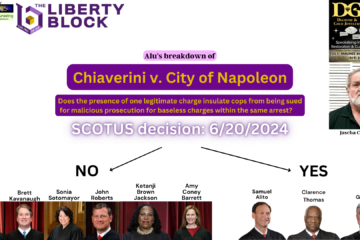In Plato’s well-loved dialogue “Alcibiades,” the title character is preparing in every way to present himself before the Athenian Assembly. Alcibiades is in the flower of his youth; tall, strong and handsome and as such is regarded already a man worthy of respect. The favored son of Athens wants to begin his career in leadership by standing proudly before the Assembly and advising on matters of war, normally among the most pressing issues in Fifth Century B.C. Greek life.
This is when our young protagonist makes his fatal error: he sits down with Socrates for a bit, a man who has long pursued him but who he has fled from successfully until now. Young Al imagines he’s in for a speech but Socrates addresses him with just a set of simple questions.
In the ensuing dialectic, Alcibiades is shown first that his motivations proceed from ambition and pride rather than a selfless desire to serve his nation-state. Socrates, at great length, uses his own words to then show him that he knows exactly nothing about morality, war, peace, or “anything else which is the business of the city.” Through this quintessential demonstration of the understated power of the Socratic method, the mentor disabuses young Alcibiades of the notion that he grasps even the difference between the just and the unjust until Socrates arrives at this observation, only a little more than a third of the way through the dialogue:
“Well then, you tell me that you’re wavering about what is just and unjust, admirable and contemptible, good and bad, and advantageous and disadvantageous. Isn’t it obvious that the reason you waver about them is that you don’t know about them?”
Alcibiades: Yes, it is.
The distinguished Representative Ocasio-Cortez has had no Socrates in her life or else she, like Alcibiades, has decided that she simply knows best. Indeed, it’s likely that at Boston University, Socrates was treated surficially during a single lecture that took time away from social justice curricula. (And I’d like to be a fly on the wall if Ol’ Socrates were to sit down and talk justice with the purveyors of ‘social justice’ for a bit.) We all watched one of her life’s great crises play out over the last week or so – we saw what happened to her plan to right all wrongs.

So, my reason for writing today isn’t to heap any more shame on the young Congresswoman or to demean her. To do so would be to miss the point. Yes, Miss Ocasio-Cortez has a problem but only in the same sense that the body we collectively know as “the left” has a problem. That problem is hubris and we don’t have nearly enough barefoot Socratics wandering the halls of academia to mitigate it. Our symposia have got the drinking and carousing part right but have forgotten the dispensation of wisdom part.
We see this hubris on every side today. Notably:
The left must maintain control of the K-12 schools for it is only they who know how to teach children properly and with equality of outcome. Though it strikes some of us as odd that there is still no equality of outcome.
Only the wise administrators can wade the morass of urban blight and again, inequality, issues. Of course, they are imbued with not only the wisdom but the empathy required. How much better off are minorities and the communities they inhabit since becoming, in many senses, wards of the state?
Only those who hold the reins of power can bring economic justice, as they did during the ’90’s with home ownership incentives which helped those who really couldn’t afford homes to buy homes. We remember the crash of 2008, but we forget the prelude.
And this, perhaps, is why it remains vital for the left to control the schools and the media: If you control the narrative, even the most historically self-evident truths can be twisted.
But Miss Ocasio-Cortez does bear further responsibility. The grand-daddy of all hubristic schemes is the climate change “emergency.” The conservative right is ridiculed for its reliance on faith but what level of faith is required to believe, even before considerations of the evidence, that the climate-advocacy politicians are working for the good of the environment rather than for political ends? How much faith to believe it’s rooted in altruism? How much faith to believe anyone knows what the temperature of the earth is supposed to be today? How much faith to believe that there’s a model that takes into account, with proper weighting and compensation for thousands of feedbacks, the complexities of the earth’s atmosphere, the earth itself, the oceans and the biome? What about when we extend those models to the economic realm? How much faith to believe that either scientists or climate advocates work disinterestedly? How much faith in our media to believe we’re getting the whole story?
In wedding herself to climate dogma the young representative has wedded herself to hubris defined and it will be her downfall; little effort is needed on our part.
Is it really mysterious that the left attempts to make public enemies of both our storied western tradition and the Judeo-Christian culture? These are the traditions that have shaped the United States in ways utterly inestimable. But among the great gifts imparted by the millennia of learning is the emplacement of humility as primary among virtues. No learning happens if we start by knowing it all and we don’t improve if we’re uncritical of our own beliefs. Many a nation has been overturned by losing sight of this maxim – there’s no need for the United States to join their number.
Beginning before university, our young people are taught to first reject the antiquated precepts of what our forefathers knew to be wise governance, knowing nothing of the ages of history that gave rise to them. They’re taught to proceed with superiority and entitlement into the infinite tangle of social and wealth disparity and they’re encouraged to believe that it is indeed possible to not only find the right climate but to make it so.
When we pillory Miss Occasio-Cortez, we’re treating only a symptom. Until academic hubris can be subdued, we will continue to produce such ideological clones in bulk. Seeing the problem for what it is seems a good first step.
Pride goeth before destruction, and an haughty spirit before a fall.
-Proverbs 16:18


